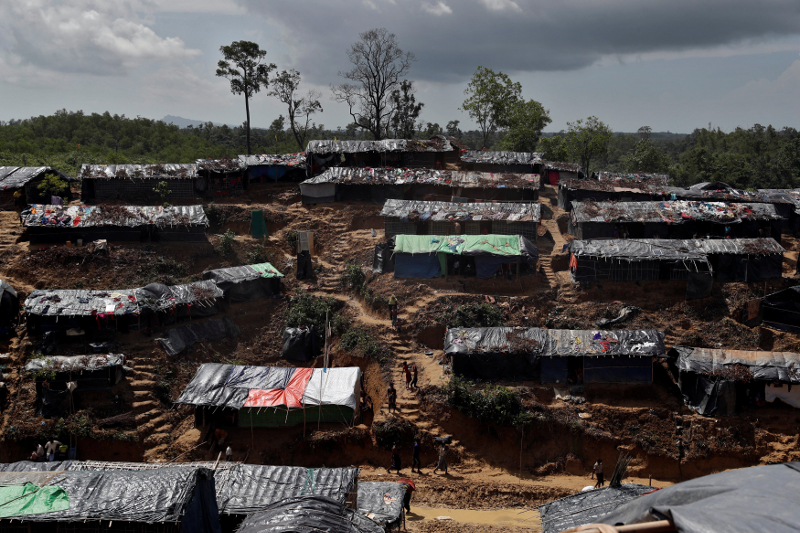COX'S BAZAR, May 5 — Bangladesh police detained at least 450 Rohingya refugees as they celebrated the Muslim festival of Eid on a popular beach, officials said today.
Around 920,000 mostly Muslim Rohingya refugees in Bangladesh are banned from leaving barbed-wire camps in the southeast where they have been stuck for years.
Most fled into Bangladesh after a military offensive in neighbouring Myanmar in 2017 that the United States designated in March as genocide.
In recent months they say they have faced increased hardship in the camps with Bangladeshi authorities bulldozing about 3,000 of their shops and dozens of private community-run schools.
Police spokesman Rafiqul Islam told AFP that officers carried out raids in the town of Cox’s Bazar late Wednesday on the second day of the Eid holidays.
They “detained more than 450 Rohingya” at one of the largest beaches in the world, he added.
Islam said the raids were part of “security measures” in Cox’s Bazar, the country’s largest resort district which attracts millions of tourists during holiday seasons including Eid al-Fitr.
“Rohingyas are involved in various crimes. It is unsafe for our tourists. We have strengthened the security of the city. As tourists visit Cox’s Bazar on Eid al-Fitr, we have stepped up patrols to keep them safe,” he said.
The detained Rohingya included refugees as young as 13 years old, Islam added.
Several of those detained told AFP at a police station in Cox’s Bazar that they went to the beach for Eid festivities.
“We are here for fun... But as soon as we arrived, police caught us. We did not do anything wrong, we just sat on the beach,” said Mohammad Ibrahim.
A woman named Samjida, 20, said it was her first visit to the Cox’s Bazar beach.
“Both my husband and I were picked up by police. My children are hungry. They haven’t eaten all day,” she told AFP.
Bangladesh’s deputy refugee commissioner, Shamsud Douza, said the Rohingya would be sent back to their camps.
The main beach in Cox’s Bazar is around 40 kilometres away from the refugee settlements.
With a dialect similar to that spoken in Chittagong in southeast Bangladesh, the Rohingya are loathed by many in Myanmar, who see them as illegal immigrants and call them “Bengali”.
They have refused to go back until assured of security and equal rights so remain stuck in bamboo-and-tarp shacks with no work, poor sanitation and little education for their children.
The camps have seen an increase in violence blamed on the Arakan Rohingya Salvation Army, an insurgent group fighting the Myanmar military but also thought to be behind a wave of murders and drug smuggling. — AFP






















